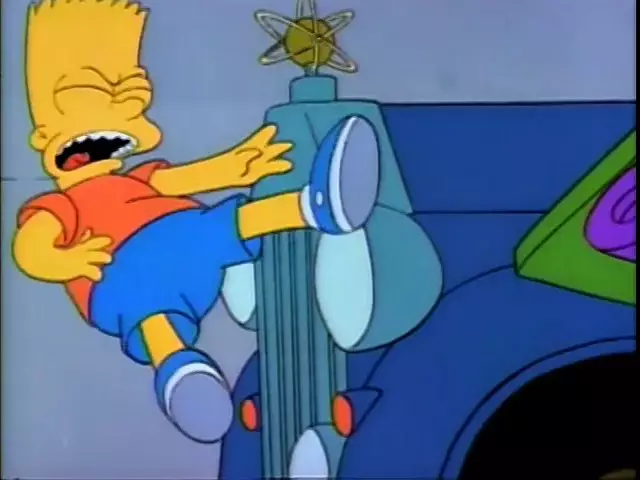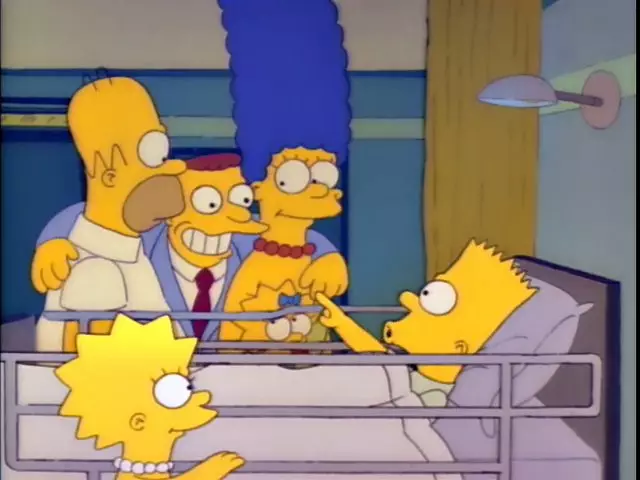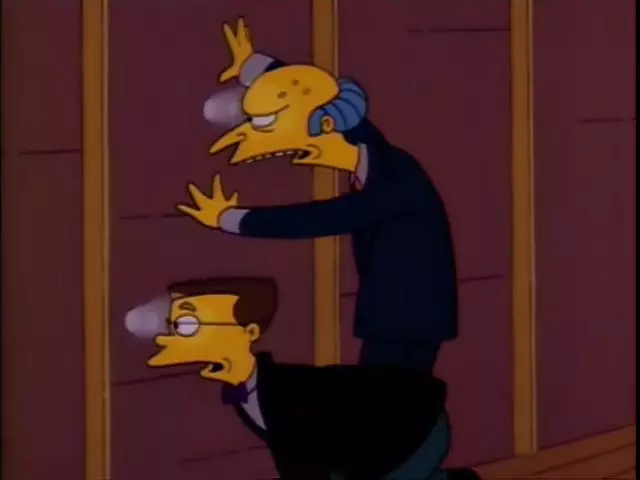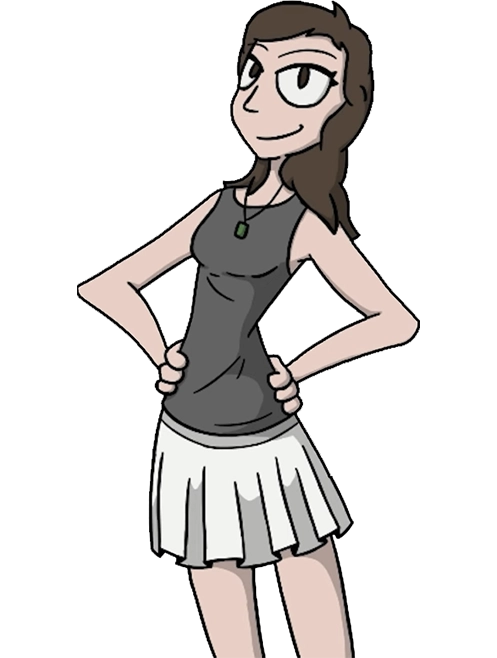My Recollection
Bart got hit by a car. The Devil makes an appearance. So do Lionel Hutz and Dr Nick.
It was back in 2003, when I was smoking a lot of weed and my entertainment was limited to a Gamecube and daytime TV, that I began getting high and going to court. I’d first gone as part of a legal studies excursion and assumed our access to be a special event for educational purposes, but I’d later found out you could just go and watch whatever didn’t involve a child. This is because a core part of the concept of rule of law is that the justice system, as it is just, has no need to hide what it does. Proceedings are done in a manner that the public can view and it is a serious burden to be part of a checking system that ensures the validity of state action towards its citizens. Or, if you’re like me, you have tired of the serious burden of Jerry Springer repeats and have decided to move on to something stronger. My presence is probably a loophole.
Being high all the time tends to make you paranoid but that paranoia is typically about things as tenuously tethered to reality as “Is my face weird?” and “Can I hear my own hair grow and, if so, can other people hear it too?” When the paranoia is about something like people knowing that I’m high, or “easily observable reality”, it starts to feel like each individual wrinkle in your brain is a mouth gnawing at the inside of your skull. That and weed makes you retarded. Some cops once asked me my age and I checked my watch before answering. They proceeded to torment me for this and I don’t blame them one bit. The idea of being baked and going to what my high brain understood as the police Boss Stage with a level of hindrances that would make a Dark Souls speedrunner double take struck me as a challenge bordering on fate-taunting hubris. Fearing the obvious, that someone in the vast authority structure would immediately pick me for high and arrest me, I put in an unprecedented effort to make myself presentable. I drowned my eyeballs in Visine. I tied my long, greasy hair back. I hosed a dense fog of Lynx Africa over my normal light glaze of bong water and Gamecube exhaust. And I even put on shoes. I then struck out into the world looking like a person you wouldn’t hire for a job but would at least acknowledge was genuinely trying, and went to Brisbane’s Supreme Court.
For normal people, good people, a toe dipped in a pool is a test of something they find unpleasant. For people whose soul alternates between unquenchable black void and scorching white light, it’s the lie you use to look like the normal folk. I wanted to be in it, but I didn’t want even the strangers of the outside to know I wanted to be in it. I was there to be a ghoul, to look at the murderers and rapists, and hope that I could feel something the TV wouldn’t give me. But I had to lie and dip my toe. Property and drug crimes were my toe.
Like anyone else secretly taking their animal filth on a playdate with the worst of society, the toe got pretty boring pretty fast. Not helping this was the tediousness of courtroom procedure. Reality’s lack of editor means you are going to sit through scenes so long and boring I owe French New Wave an apology. Real accused drug dealers actually listen to their lawyers and answer questions in cowed monosyllables that get scarcely more interesting than assenting or dissenting murmurs. There are no great outbursts. No shocking revelations. Nobody leaps a table.
In comic juxtaposition to the dull procedure is the primate savagery of court design. The animal kingdom has nothing on a courtroom’s pantomime of crude power displays. Brisbane’s old courtrooms were a behaviourist fusion of 1970s faux art-deco and baboon asses that screamed “YOU ARE SMALL. WE ARE BIG” with the subtlety of a high school drama teacher’s personal taste. The resulting combination of dry and ridiculous was like an episode of Mystery Science Theatre where Mike, Tom, and Crow just silently watch the film. You keep waiting for someone to acknowledge the obvious absurdity, at least the wigs, but they don’t and the tension starts making you think that you should probably get things started with a few funny quips of your own.
A combination of boredom and self-preservation instinct made me decide to just check out the murders.
As absurd as the combination of powdered wigs and serious authority is, it’s tolerable. But there’s only so much one can take and a particular judge in a particular murder case took it passed what I could ever have expected.
Part of the comic ALPHA posturing inherent to the legal process is judges employing a booming authoritative voice. While not universal, it wasn’t uncommon in the trials I went to and I’d acclimatised to it a bit. You can probably imagine how it would sound. How someone may linger on a sound or syllable for maximum effect. The trial I was at was a murder, a GAY murder. I’m not sure what makes gay murder different to straight murder (maybe gays are worth more EXP?) but the judge seemed intent on bringing it up even when the already flimsy reasons to do so weren’t there. This was weird and already pretty funny. The judge continued:
“And on the 17th of February you did enter into a HO-MO sexual relationship with the deceased”
He didn’t enunciate the homo in homosexual so much as he herniated it. What looked like a pair of moribund buttocks in a wig vigorously exploded the “HOMO” in homosexual before mumbling a waning “sexual” in a tone that sounded like someone despondently sighing through a huge tuba.
When you smoked as much weed as I used to, you spent a lot of time checking to see if something really happened.
That can’t have been right, I started saying to mysel–
“And while you were in this HOoo-MOoo sexual relationship”
I sniggered and I think it may have been audible.
This deranged primate power carnival takes itself really goddamn seriously and the focal point of all of it sounded like a snooty Marx Brothers villain. I’d also just sniggered in court. My brain politely informed me that I was:
- A: Not relevant to this at all
- B: Stoned
- and C: could probably be charged with contempt of court for some if not all of that
The paranoia one feels while baked is pretty bad but when you forget about it you’re left with the unthinking confidence of a cartoon baby wandering around a construction site. I was the cartoon baby if suddenly the reality of the swinging girders crashed down upon me like so many homos. I’m high in court. What the fuck am I doing here? I just laughed at the Judge-Tuba honking on about HO-MOs and I think he heard me.
I ran away and resigned myself to playing Gamecube instead of watching trials.
The Episode
As hard as beginnings are, I’d rate endings as harder. Not only do these need to be the logical culmination of everything the narrative has done so far, they will be the last thing your user interacts with. Coming up with a word or shot that does that is no mean feat. Sitcoms have a few advantages in that the trope heavy nature of the genre means one can do something that has been done a million times, or repeat oneself a million times, without breaking anything critical. The Simpsons does this a lot, happy little wrap-ups to basic familial stress narratives and they seldom hurt the show because the show’s primary point is comedy and not narrative complexity. But you don’t want to do that every time, so occasionally you try something different or leverage the trope ending into something more than it typically is. Bart Gets Hit by a Car adds some weight to its wrap-up that is, in isolation, very well done. But as it has not been adequately counterbalanced earlier in the narrative, it clashes with its own episode and ends up collapsing an otherwise fine structure.
Narratives are a lot like magic tricks. The more familiar audiences are with their inner workings the less effective each trick becomes. Having your audience know where a plot is going before you get there can disengage the viewers you are trying to emotionally affect. Nobody will laugh or cry if they’re pondering the visible workings of your crudely built machine (ya hear me, WWE?). The better mousetrap that has developed from this is greater narrative complexity, but this too has serious challenges in the interconnected world.
A line I’ve said about fighting games is nobody anywhere, ever has a balance team that can match a million players trying to break your game. Similarly, the folk behind Westworld learned that no amount of unlabelled separate timelines can confuse a forum full of undiagnosables trying to take your show apart. But you can misdirect people. Season one of Westworld worked well because the multiple timelines were a great big distracting thing that got everyone’s attention. What made the finale interesting wasn’t the reveal of that fact, but the reveal of a twist that wasn’t heavily signalled: Robert Ford’s role and motivation. Like a magic trick hidden within a magic trick, a new surprise emerges doubled by the fact that we weren’t even checking for it. By using smaller threads, writers can hide serial and twist elements in plain sight, thwarting viewer deconstruction and creating excellent surprises.
It’s called “satori”, the Zen term for the moment of awakening, when everything clicks together and you realise something. But it’s tricky.
J.J. Abrams has this idiot theory about a box and how what’s in it doesn’t matter. It’s like an inventor screaming about their genius while their gadgets never actually do anything. The narrative is god. Setting up mystery takes no effort as the narrative controls how much information is available to the audience at any given point. His stories amount to an hour of a magician setting up props, explaining that there’s nothing up his sleeve, and then walking off stage without having ever done a thing. The Leftovers is a show people think is good and it is built from this concept. It’s the contrast to the Westworld example and illustrates problems with having the point of a show be something different to what the show made you think it was.
The Leftovers was about a world living on in the wake of a kind of rapture, a big chunk of the population just vanish one day with no pattern or explanation. I went into the series expecting this to be the box that wouldn’t get explained and that would be fine. It’s okay to have a major foundation of a narrative not be the focus of the story. Provided your series signals this, and The Leftovers sort of does, you establish a purpose beyond critique. But the series tries to have its cake and eat it too. The show doesn’t just revolve around the reality of people coping after something like this, it delves into the reality of the event with characters having various kinds of visions, possible powers, and even temporarily dying to venture into alternate/dream realities. These aren’t minor threads, these take up whole episodes and arcs with the coping being a kind of side-show.
Wrapping this up would be a challenge and it was, unsurprisingly, one beyond the writers. The final episode focused on the relationship between series mains, Nora Durst and Kevin Garvey. Nora had, supposedly, found an answer to the vanishing and ventured into a parallel universe via a sketchy device at the conclusion of the prior episode and the finale is set years later when Kevin finally tracks her down. Save Nora telling (lying to) Kevin about where she went, every major focal point of the series is abandoned as though what we were really watching was the ways this amazing event affected two people’s love for each other. But none of this really was the focus. The narrative as god just decided it was at the end without having ever laid enough breadcrumbs to validate it. It never showed this relationship, most of it happened in a season break and the characters spend most of the series apart pursuing visions, dream worlds, and dimension hopping gadgets, it just told you it was there and then ended the series with it. It’s okay for a mystery box not to matter but something else has to be there or you have nothing.
It’s the difference between an amazing magic trick pulled off with deft skill and one pulled off by using video editing. It’s also largely the way Bart Gets Hit by a Car wraps itself up. I say largely because the story does build Marge’s concerns at a few points over the episode, but these focus on driving her to deliver an honest testimony more than they are pointed toward actual conflict between her and Homer. That conflict is only presented as a result of the testimony which occurs with only a few minutes of the show to go. Within those minutes, the titular point of the show is gone and the viewer is left with an improperly supported, unnecessarily heavy lump of plot that stands out like a boil.
Ending the primary narrative conflict four minutes before the episode ends in a comedy is typically done to wrap things up with some combination of familiar tropes and jokes. This kind of palate cleanser is one of the primary differences between a comedy and a funny drama, the joke over dramatic ending emphasis. This episode doesn’t do that, the final five minutes is a sharp tone shift to one of Homer not knowing if he still loves Marge after she costs him a million dollars. To be fair, the primary culprit of this tone shift, Homer’s inner monologue, wasn’t in the script and was added at the last minute when producers thought silence wasn’t getting the point across. It’s melancholy, bordering on dark, and is wildly unnecessary as Homer ends up still loving Marge anyway, with no actual changes having taken place. The whole thing could have been mostly skipped, or played out in the court room, and the result would have been in step with the episode’s tone.
Bart Gets Hit by a Car is not a bad episode, enough of it otherwise works, but it’s not a good one. It’s a filler episode with only a few memorable moments that come off the back of introduced side-characters who went on to be throwaway gag favourites. Its last four minutes are an ugly mass that make the whole thing feel like the writers didn’t really know how to deal with the major plot beats but couldn’t bring themselves to just trope it out. They solve this problem by awkwardly pretending to be a serious drama for a moment and then troping it out. THE WORST OF BOTH WORLDS! Genius.
Yours in not spitting over the side, Gabriel.
Jokes, lines, and stray thoughts.
“Episode 23: Bart Gets Hit By A Car” is the second regular episode to get a title card, the first being The Telltale Head. This time around it was done as a meta joke to make people think they’d been missing title cards all this time. It doesn’t quite land, it’s funnier with the commentary team explaining it, and it otherwise just stands out as a pointless oddity.
Here’s the frame of Bart getting hit

Burns is actually driving, with Smithers in the car, which is a touch odd given later characterisations of the pair and even within the current understanding. Why is Burns driving himself AND his pet bootlick? It’s a structural thing to make Burns the villain over Smithers and to give him some compassion to counterpoint his coldness from.
The devil is almost exactly Herman and the commentary doesn’t point this out which bothers me. He was originally a large, scary character but they changed that.
The Simpsons uses a kind of wrinkled smile to indicate that it’s a less than genuine, almost sinister one and Hutz’s is a classic example. It’s a bit like the anime face tropes in that it’s a thing you can only really do in animation but it’s weirdly familiar and communicates the idea well.

The joke of Homer being caught talking about what he’d do to Burns has a funny little hook that differentiates it from the standard “caught tough talking” gag as he literally starts it with “If I wasn’t so spineless…” It’s funny and a good nod to the tragic level of self-knowledge Homer has.
The FBI = Female Body Inspector joke is dumb but one being a large plaque on Dr Nick’s wall makes me chuckle because of its spurious medcial officialness.
Burns’ headline dreams split from even the nominal reality almost immediately and end in him being praised simply for being which adds a bit more to an otherwise fairly tired gag.
Burns’ contempt for the justice of the commoner is funny and adds a bit of validation to the sketchy behaviour of the main characters. Having your mains be shit is easier to get away with if you have someone else be worse.
Burns’ version of events, and his frustration at not being believed, is another funny window into his world view. The idea of Bart menacingly skating AT a car still makes me chuckle.
Burns yelling at his lawyers, and calling Homer an ape, all while he can hear everything is good. Homer’s frown of frustration, another insult he can only absorb, is another good example of a joke that works with and adds to character.
That Hutz takes 50% means Homer would get the same if he’d have taken the offered settlement, meaning the whole thing falling apart is a result of another Homeric character flaw.
Joke of the episode goes to Homer’s spit. Missing the paper is a good gag by itself but the cut to Burns and Smithers’ reaction, then back to Homer, now minus his angry expression, wiping it off with his sleeve, evolves the laugh beyond the expected. The bonus surprise, layered with the extra character factors of Homer’s cowardice before his employer extending to his raging tantrums, is the kind of prototypical Simpsons skill shot.
Smithers’ lap dog status getting a nice visual joke here, one that is returned to, and built on, several times to good effect.

Homer just looks at his wife and loves her even more. This is that kind of trope I talked about earlier, it’s hacky but it’s hacky within the structure used by the series and accepted by the viewers. Using this as the fix anyway, after going to all the effort of deviating away from the trope, is irritatingly lazy. The conversation could have happened in court and been within the viewer accepted structure. This was like laboriously teaching me to enjoy artichokes just to serve me a dish without them.





2 replies to Bart Gets Hit By a Car
Alex on 2nd August 201802 Aug 18 said:
I try to comment on each of these to let you know I've read it but I'm struggling to think of anything to add because you've covered my thoughts on the episode pretty well. So I'll just say that story about watching trials had me giggling like a madman on the train home last night.
Gabriel on 5th August 201805 Aug 18 said:
Comment away. Tell your friends, relatives, and enemies.
Comment on Bart Gets Hit By a Car
To reply, please Log in